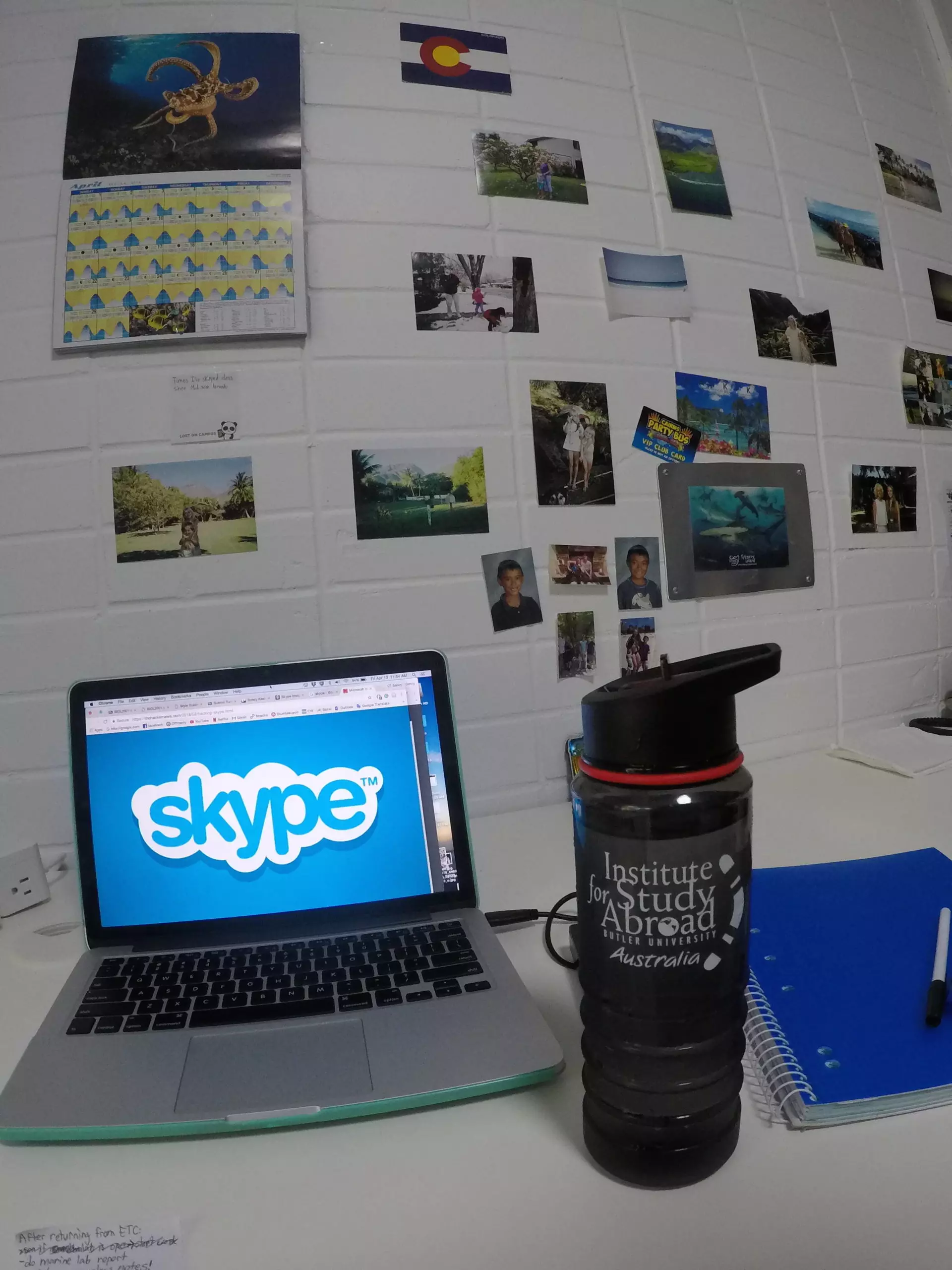When Abroad, Phone Home!


Reality Hits

It’s that time of the semester when there is increasing popularity of memes speaking to many students abroad who are slowly realizing that they still have academic responsibilities and are bracing themselves for the impending doom of neglecting them. The academics may be different from back home, but assignments, essays and exams still do exist on this magical semester abroad. First of all, don’t fret. Everything will be fine. Take a breath and relax because this isn’t the end of the world. Second of all, call home. Talking to friends and family back home really helps when you feel as if you’re stuck in some sort of rut or feel hopeless.
My Dilemma
If you’re like me and are studying abroad (or planning to) in the Southern Hemisphere, you had over 2 months of a winter break and are thoroughly confused at the idea of getting back into that academic habit. It’s basically like throwing your inner academic clock out of whack by placing summer vacation during the winter holidays. I, in addition to most of the other study abroad students I know, were all in the same boat of uncertainty that we could manage the tasks ahead of us. Our conversations at mealtimes were flooded with comments like “I wish I could just call my mom and tell her to come pick me up, that always fixed everything.” This got me thinking that maybe making it a habit of calling family and talking to friends back home could cheer me up a bit. I couldn’t have imagined how beneficial this was for my mental health and stress levels to just catch up, complain, laugh, maybe even cry a little (homesickness happens to the best of us) and talk things out with people that made me feel the comfort of everything being normal.
How would this help?
Calling home regularly helped change my point of view from “wow I’m studying abroad so this semester is not going to be anything like back at home” to “wow I’m studying abroad and this is amazing, but I still have some responsibilities like I do back home.” Also, the academics while abroad don’t have to be annoying or get in the way of having fun and exploring. While talking to family back home, my mom persuaded me to try and approach my classes in a different way. Instead of it being time consuming or boring, try to use it as an excuse to meet more people in this new place as well as network with professors or researchers that could end up giving you valuable advice on career choices. So rather than suffering through studying or working on my own in my room or the library, I reached out and made study groups with people in my classes. If I have a question about something, I’ll go to my professors office hours and talk to them face-to-face to get a more personalized experience, which I’m more accustomed to at my small college back home as opposed to this new 50,000 student university. In the end, being abroad means a whole new world of independence and freedom that I have never been exposed to before, but by no means does this mean that I can’t reach out to friends and family back home for advice or a sense of normalcy. What began with a semi-existential crisis resulted in improvement to both academic and emotional aspects of my study abroad experience.
Soncy K. | Biology Major | Scripps College | University of Queensland Partnership in Australia | Spring 2018 | IFSA International Correspondent